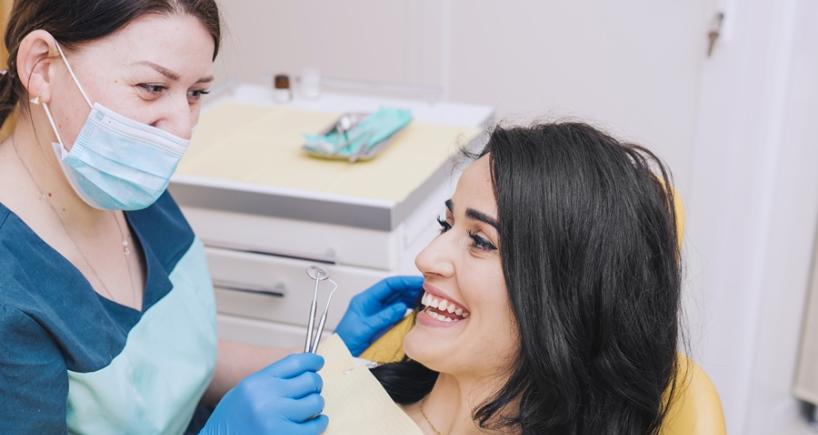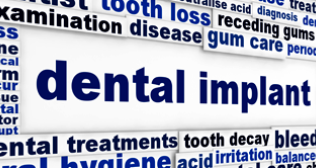
How to Whiten Teeth: Types of Teeth Whitening Procedures
Introduction
In the era of selfies, WhatsApp, and social media, a beautiful smile is usually the place to start. Although a whiter smile may be bright, it will not necessarily be more natural. In this article, you will discover:
- The types of teeth whitening procedures
- How one can maintain them over time
- And more
Types of Teeth Whitening Procedures
Whitening systems can be categorized in various ways. The classification given below is as per the American Academy of Cosmetic Dentistry.
Whitening Toothpaste
They generally comprise higher quantities of abrasives and detergents than standard toothpaste to get rid of tougher stains. Whitening toothpastes do not comprise bleach (sodium hypochlorite), but some comprise low concentrations of carbamide peroxide or hydrogen peroxide that lighten tooth color.
OTC Whitening Strips and Gels
Whitening strips deliver a fine layer of peroxide gel on plastic strips molded to fit onto the buccal surfaces of the teeth. An array of white strip products are available in the market with varying instructions. A classical set of instructions is to apply the strips twice daily for half an hour for 2 weeks. Tooth lightening can be witnessed in a few days, and this approach can lighten the teeth by 1 or 2 shades. Few new whitening strip products need only one 30-minute application per day and have the same whitening end point as the two-a-day products.
Whitening Gels
They are peroxide-based gels applied with a tiny brush directly to the surface of the teeth. Manufacturer’s instructions generally include a two-times-a-day application for 14 days.
Whitening Rinses
They comprise oxygen sources, such as hydrogen peroxide, that react with the chromogens. Manufacturer’s instructions generally include two-times-a-day rinsing for 1 minute each. It takes up to 3 months to analyze a 1- or 2-shade improvement in tooth color.
Tray-Based Tooth Whiteners
This method comprises a fitted tray consisting of carbamide peroxide-bleaching gel worn for 120 to 240 minutes a day or overnight.
In-Office Whitening
Rapid tooth-lightening can be attained through in-office whitening because these products deliver higher quantities of peroxide than OTC. Consequently, gingival tissues are generally shielded before the agent is applied. Some healthcare professionals utilize laser systems to accelerate the rate of desired chemical reactions.
Side Effects of Teeth Whitening
Like any medical treatment, there are potent risks and side effects linked with teeth whitening. These include:
Tooth Sensitivity
It can range from mild discomfort to critical pain. Whitening products can cause short- or long-term damage to the enamel, leading to elevated sensitivity. Additionally, refraining from cold or hot foods and drinks after treatment can help alleviate any discomfort. Before opting for a tooth whitening procedure, weighing the potential risks and perks is important, especially if the individual is prone to tooth sensitivity.
Gum Irritation
During teeth whitening, gum irritation is a prominent side effect. Moreover, utilizing a custom-fitted tray from a dental professional can help decrease the risk of gum irritation.
Damage to Enamel
The enamel of teeth is crucial. It shields the teeth from germs like bacteria as well as decay. However, teeth whitening treatments can cause harm to the enamel if not done properly or overused. Enamel damage can lead to elevated sensitivity, pain, and white spots on teeth.
Pondering Why Your Teeth Aren’t as White as You Expected Them to be?
There are several factors that influence how white teeth will become through teeth whitening. While genetics may have some influence on the color of teeth, lifestyle factors can play an even larger role. Drinking carbonated beverages, wine, soft drinks, and smoking are just a few of the things that can cause discoloration in teeth.
Here are three factors that might influence the effectiveness of the teeth whitening process, whether it is done using a take-home kit or at the dentist’s office.
Original Color of Teeth
- To begin with, how white an individual’s teeth are will ultimately impact the outcome of the teeth whitening process.
- The more discolored an individual’s teeth are, the longer it may take to get to the shade an individual hopes for.
- Interestingly, individuals with distinct color hues respond differently to the teeth whitening processes.
- Individuals whose teeth have a yellowish hue react better than those with a gray or brown hue.
Time of Procedure
- All teeth whitening processes have an estimated time of treatment to reach optimal results.
- If the treatment times are not followed properly, the result will be achieved later than anticipated.
- Zoom teeth whitening is one of the world’s rapid and most effective whitening systems, permitting individuals to whiten their teeth up to 10 shades in an hour.
- Other take-home kits can be purchased to perform teeth whitening from the comfort of the home, but they often take much longer, particularly when process times are not followed.
Lifestyle Habits
- They can cause discoloration to teeth, but they can also affect the teeth whitening process.
- To improve the longevity of the teeth whitening treatment, it is recommended that people be more conscious about their oral hygiene routine and avoid products that may stain their teeth.
Teeth Whitening Aftercare Tips: For “Sparkling White” Effect
- An individual’s teeth will be sensitive after the whitening procedure.
- An individual should generally avoid meals that are either too hot or too cold.
- Purchasing toothpaste designed specially for sensitive teeth will aid in decreasing potential discomfort.
- It is recommended to prevent eating the damage-causing foods or drinks as much as possible.
It is important to consult with a dentist before opting for any teeth whitening treatment to ensure safety and effectiveness.
Popular Searches :
Hospitals: Cancer Hospital in Delhi | Best Heart Hospital in Delhi | Hospital in Amritsar | Hospital in Ludhiana | Hospitals in Mohali | Hospital in Faridabad | Hospitals in Gurgaon | Best Hospital in Jaipur | Hospitals in Greater Noida | Hospitals in Noida | Best Kidney Hospital in Kolkata | Best Hospital in Kolkata | Hospitals in Rajajinagar Bangalore | Hospitals in Richmond Road Bangalore | Hospitals in Nagarbhavi Bangalore | Hospital in Kalyan West | Hospitals in Mulund | Best Hospital in India | Gastroenterologist in Jaipur ? | Best Cardiology Hospital in India | Gastroenterologist in Jaipur
Doctors: Dr. Rana Patir | Dr. Rajesh Benny | Dr. Rahul Bhargava | Dr. Jayant Arora | Dr. Anoop Misra | Dr. Manu Tiwari | Dr. Praveer Agarwal | Dr. Arup Ratan Dutta | Dr. Meenakshi Ahuja | Dr. Anoop Jhurani | Dr. Shivaji Basu | Dr. Subhash Jangid | Dr. Atul Mathur | Dr. Gurinder Bedi | Dr. Monika Wadhawan | Dr. Debasis Datta | Dr. Shrinivas Narayan | Dr. Praveen Gupta | Dr. Nitin Jha | Dr. Raghu Nagaraj | Dr. Ashok Seth | Dr. Sandeep Vaishya | Dr. Atul Mishra | Dr. Z S Meharwal | Dr. Ajay Bhalla | Dr. Atul Kumar Mittal | Dr. Arvind Kumar Khurana | Dr. Narayan Hulse | Dr. Samir Parikh | Dr. Amit Javed | Dr. Narayan Banerjee | Dr. Bimlesh Dhar Pandey | Dr. Arghya Chattopadhyay | Dr. G.R. Vijay Kumar | Dr Ashok Gupta | Dr. Gourdas Choudhuri | Dr. Sushrut Singh | Dr. N.C. Krishnamani | Dr. Atampreet Singh | Dr. Vivek Jawali | Dr. Sanjeev Gulati | Dr. Amite Pankaj Aggarwal | Dr. Ajay Kaul | Dr. Sunita Varma | Dr. Manoj Kumar Goel | Dr. R Muralidharan | Dr. Sushmita Roychowdhury | Dr. T.S. MAHANT | Dr. UDIPTA RAY | Dr. Aparna Jaswal | Dr. Ravul Jindal | Dr. Savyasachi Saxena | Dr. Ajay Kumar Kriplani | Dr. Nitesh Rohatgi | Dr. Anupam Jindal |
Specialities: Heart Lung Transplant | Orthopedic | Cardiology Interventional | Obstetrics & Gynaecology | Onco Radiation | Neurosurgery |












